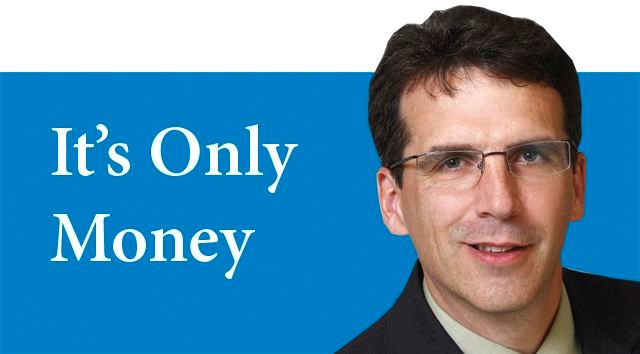There was nothing of that little head nod which we, especially men, are inclined to give to one another when we pass an acquaintance somewhere in the pubic square. Just seething hatred in his countenance.
It was the kind of simmering a blind man can just feel hovering in the air, with the iron-tinted warm vapour of blood not yet sprayed.
Perhaps only a small town banker working for a big city bank could know the feeling.
My client, soon to be my former client, had gotten away with so many breaches of agreed-to conditions that he figured he ran the show. He was like some sort of TV boss who was so much the big man on his own mind-campus that he could string us out forever. He practically laughed at our inaction.
But at some point, any reasonable bank asks when it might be more prudent to let another hungry banker take on the risk and so we did. And at that moment, his big-fish-small-pond smirk turned all scowl.
So there we sat, within strangling reach. We watched our young daughters/granddaughters perform their recitals in red and green festive Christmas tree costumes and, honestly, I was hoping he couldn't tell mine apart from the others.
During the intermission, small talk was forced awkwardly on us by a mutual acquaintance. "So which one is yours?" The angry one queried - full of stealth pleasantries.
"Mine? Oh, she's not here. She's out of town... visiting her uncle... (think fast)... in prison." I leaned in with a casual, but whispered tone: "Ice-pick murder - to the temple. Nasty stuff. He gets out on parole in January. Crazy sucker."
In due course another institution took the deal, and he more than likely gave them all the things that he had so long refused to give us. And a couple of years later, the business was closed.
Paperwork might be the downfall of many a small business, but a good paper pusher can greatly benefit from a little attention to tax detail, as noted below in our second installment on 2016 year-end taxes.
Year-end tax planning for business owners
Consider an individual pension plan: Sometimes referred to as an RRSP on steroids, an IPP is a registered defined benefit pension plan, similar to many large company sponsored plans, except it is established and sponsored by your company and legislatively designed for the business owner.
In order to establish a plan, you must receive T4 employment income from your company.
An IPP is most suitable for those who have significant (say $100K-plus) T4 income and are at least 40 years of age.
If your company is incorporated and you are looking for both year-end corporate income tax deductions and a structured retirement savings plan for yourself, consider establishing an individual pension plan.
Pay salaries before year-end: If you operate your own business then consider paying salaries to yourself and family members before year-end. This year-end payment will give your family member earned income so they can make an RRSP contribution the following year.
The payment will also give your business a tax deduction in the current year. The salary paid must be reasonable based on the services performed by your family member. A good rule of thumb is to pay your family member what you would have paid someone who isn't related to you.
If your incorporated business has family member shareholders in a lower tax bracket, consider paying them a dividend to income split.
Declare a bonus before year-end: If you are a business owner and require income, declare a bonus before the end of your corporation's tax year and pay the amount no later than 180 days after year-end.
Assuming your corporation's year-end is Dec. 31, if your corporation declares a bonus on Dec. 31, 2016, it will get a tax deduction for 2016 and the tax you will have to pay will be deferred if you receive it at the beginning of 2017.
Loans to shareholders: If your business loaned you money, ensure that the loan is repaid before the end of the year after the year the loan was granted to avoid having to include the value of the loan as income on your personal tax return.
Purchase assets for your business: If you intend on purchasing assets for your business (i.e., computer, furniture, equipment, etc.), you should consider making this purchase before year-end.
If the asset is available for use, this year-end purchase will allow the business to claim depreciation on the asset for tax purposes.
However, generally only half of the regular allowable depreciation can be claimed for tax purposes in the first year of an asset purchase.
This article is not intended as nor does it constitute tax or legal advice. Readers should consult a qualified legal, tax or other professional advisor to implement a strategy. Interest rates, market conditions, tax rules and other investment factors are subject to change.
Mark Ryan is an advisor with RBC Wealth Management, Dominion Securities (member CIPF) and can be reached at [email protected].



